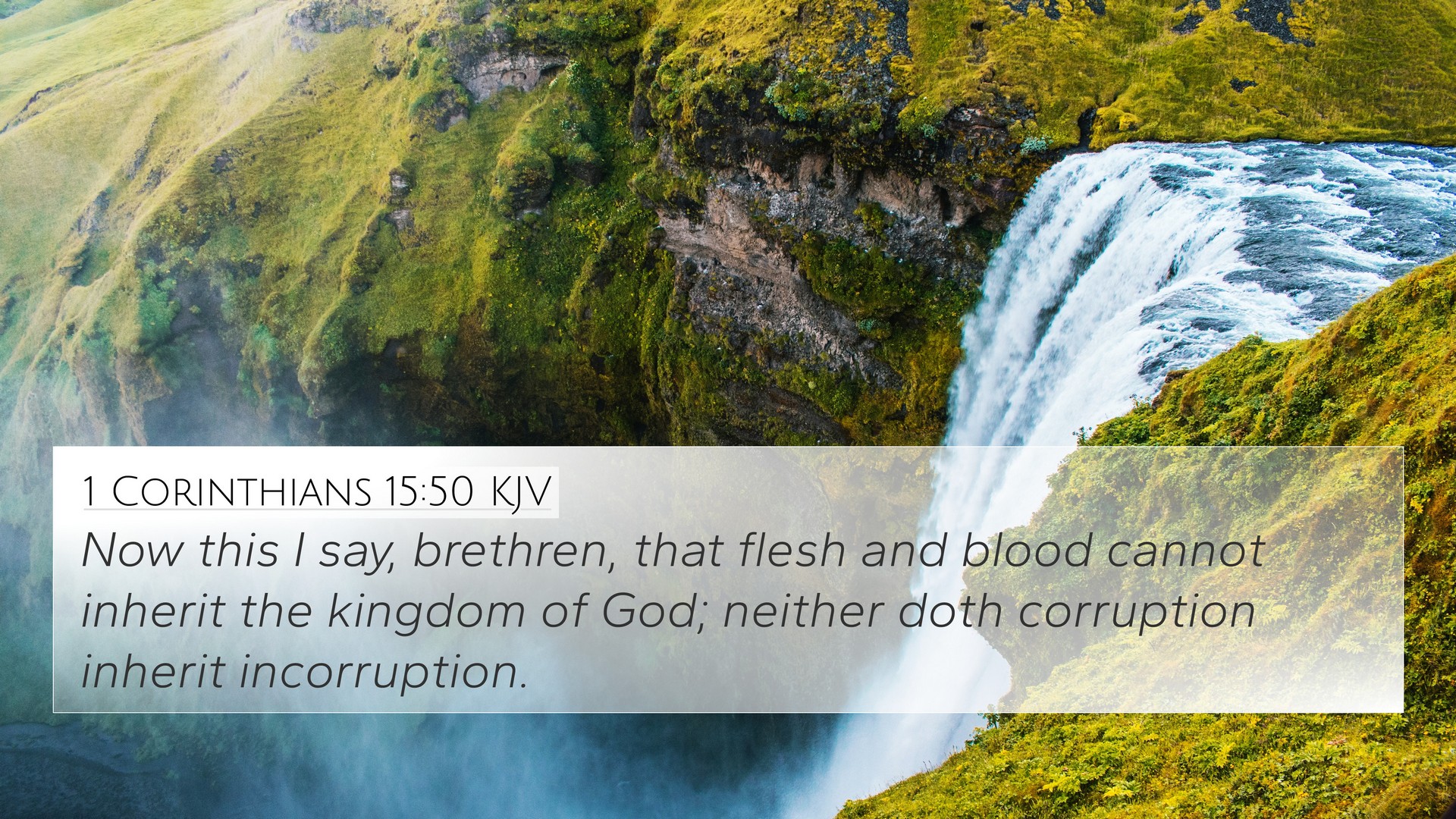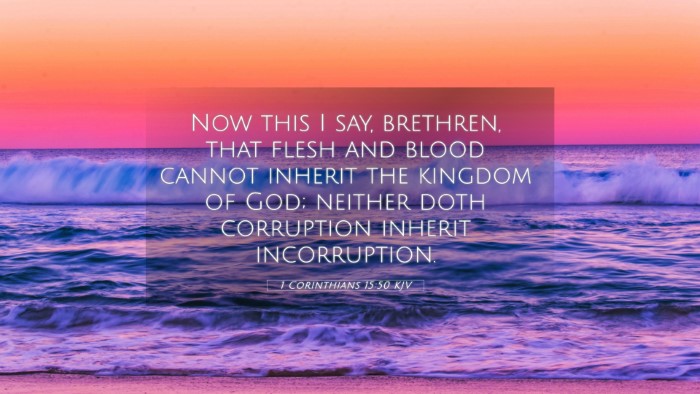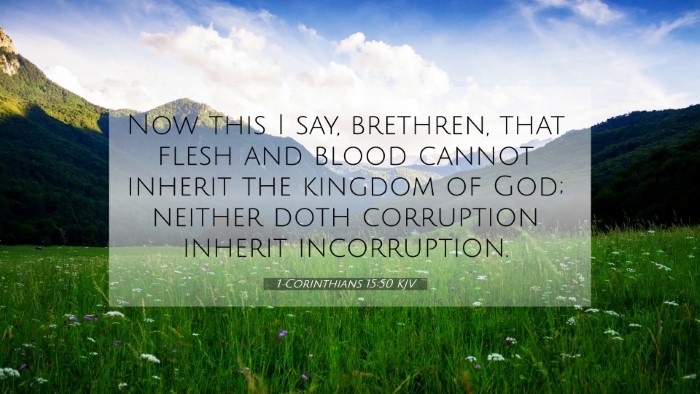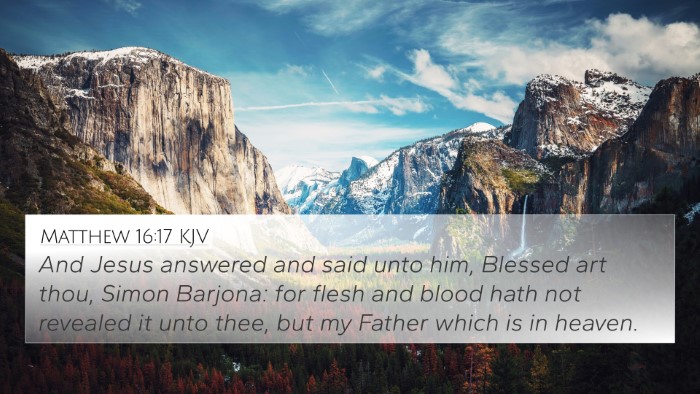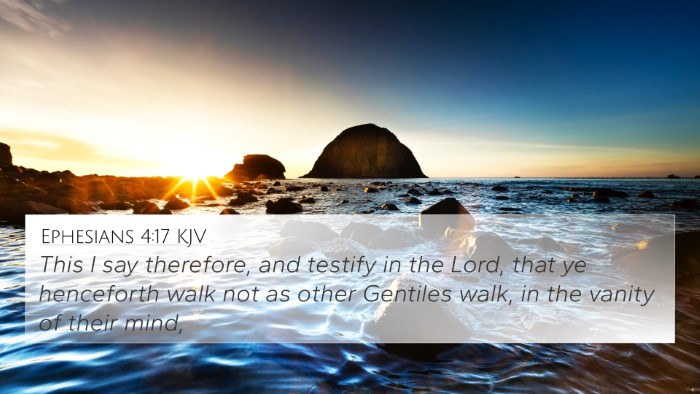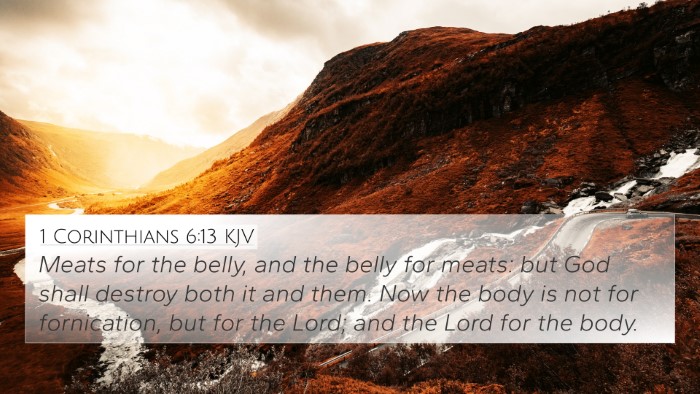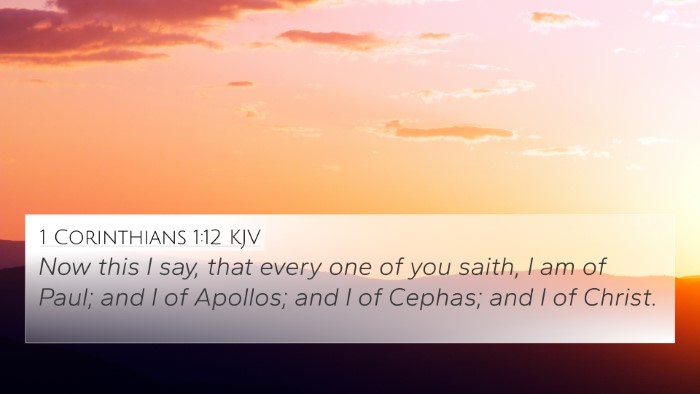Bible Verse Analysis: 1 Corinthians 15:50
Verse: "Now this I say, brethren, that flesh and blood cannot inherit the kingdom of God; neither doth corruption inherit incorruption." (1 Corinthians 15:50 KJV)
Summary of Meaning
This verse encapsulates a fundamental teaching of the Apostle Paul regarding the nature of the human body in relation to the everlasting kingdom of God. The phrase "flesh and blood" refers to our mortal and corruptible bodies, emphasizing that the physical form, with its inherent limitations and imperfections, cannot partake in the divine and eternal realm designated by God.
Insights from Commentaries
-
Matthew Henry's Commentary
Henry asserts that Paul emphasizes the need for spiritual transformation in order to enter God's kingdom. Our earthly bodies are subject to decay and sin, which disqualifies them from inheriting eternal life. The commentary strengthens the call for believers to seek a more profound relationship with God that transcends the physical.
-
Albert Barnes' Notes on the Bible
Barnes explains that Paul here draws a clear distinction between temporal and eternal existence. He highlights that corruption, which characterizes our earthly lives, cannot coexist with the glory of God. The implication is that believers must be transformed, aligning themselves with the holiness required for eternal life.
-
Adam Clarke's Commentary
Clarke discusses the implications of this verse regarding resurrection. He asserts that the body must undergo a change to fit into the eternal state promised by God. It reinforces the Christian hope of resurrection and transformation into a glorified state, allowing believers to inherit the kingdom.
Theological Implications
This verse serves as a crucial point in Christian eschatology, denoting the necessity of transformation through resurrection. It posits that earthly existence, full of flaws, cannot inherit a perfect kingdom characterized by divine righteousness.
Cross-References
Several other scripture passages relate to the themes presented in 1 Corinthians 15:50, enhancing our understanding through comparative analysis:
- John 3:6: "That which is born of the flesh is flesh; and that which is born of the Spirit is spirit."
- Romans 8:21: "Because the creature itself also shall be delivered from the bondage of corruption into the glorious liberty of the children of God."
- Philippians 3:21: "Who shall change our vile body, that it may be fashioned like unto his glorious body, according to the working whereby he is able even to subdue all things unto himself."
- 2 Corinthians 5:1: "For we know that if our earthly house of this tabernacle were dissolved, we have a building of God, an house not made with hands, eternal in the heavens."
- 1 Peter 1:4: "To an inheritance incorruptible, and undefiled, and that fadeth not away, reserved in heaven for you."
- Hebrews 9:27-28: "And as it is appointed unto men once to die, but after this the judgment: So Christ was once offered to bear the sins of many; and unto them that look for him shall he appear the second time without sin unto salvation."
- Revelation 21:4: "And God shall wipe away all tears from their eyes; and there shall be no more death, neither sorrow, nor crying, neither shall there be any more pain: for the former things are passed away."
Understanding the Connections
The connections between these verses contribute to a broader understanding of how the mortal experience transitions into the eternal. This emphasizes not just the transformation of the physical but also the spiritual aspect essential for believers.
Tools for Cross-Referencing
Utilizing tools such as a Bible concordance or a Bible cross-reference guide can provide valuable insights into the thematic connections between verses. This forms a cohesive understanding as you explore scriptures.
Conclusion
In summary, 1 Corinthians 15:50 deeply reflects the transformative journey believers undertake from their physical, corruptible existence to an eternal inheritance in the kingdom of God. Engaging in comprehensive Bible verse cross-referencing expands comprehension and highlights the rich inter-Biblical dialogue that supports and elaborates on core Christian teachings.
